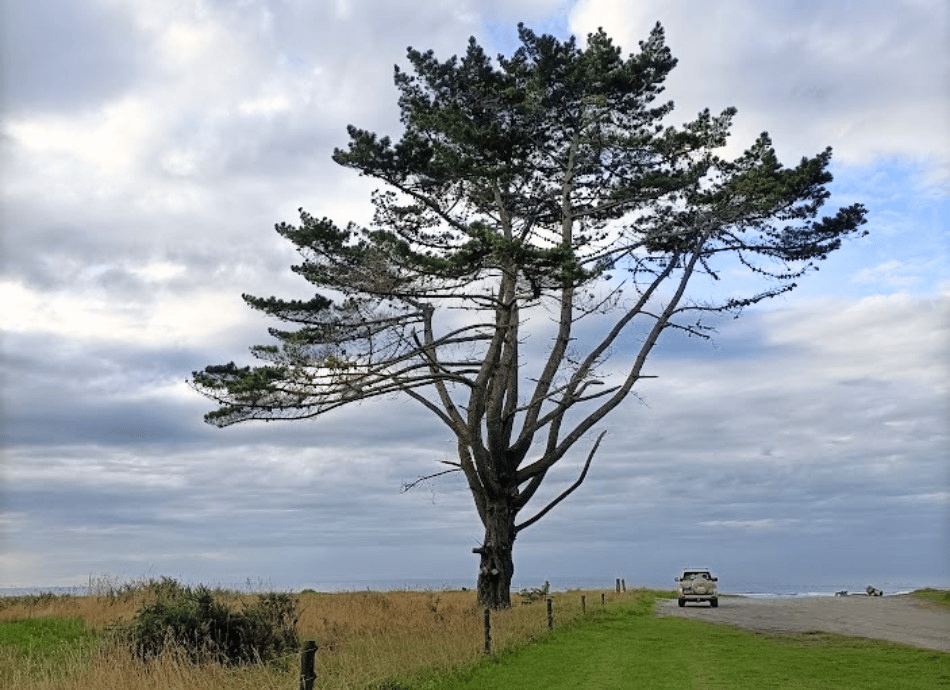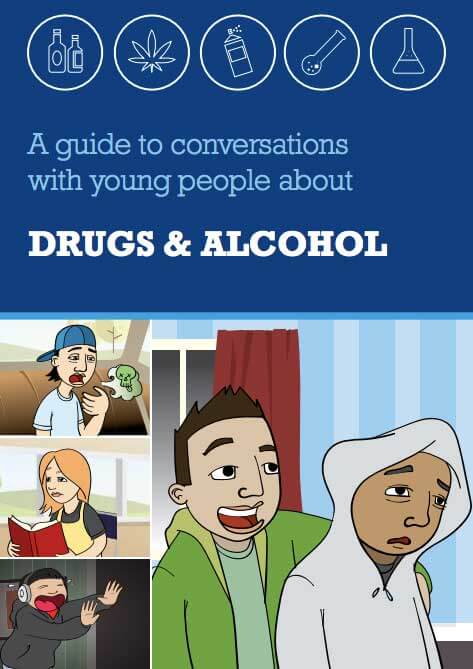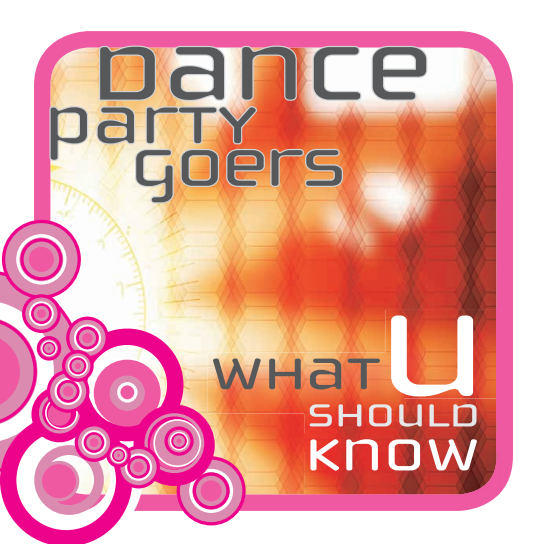Illegal drugs
Key points about illegal drug use
- People use illegal drugs for many reasons – to experiment, to seek new experiences, to self-medicate or to be social and not be left out.
- Whatever the reason, there's always a risk of harm.
- Knowing what could happen when you take drugs can help you understand the risk and keep yourself safer.

A drug is a substance that affects the way your body functions. If a drug is classified as ‘illegal’, this means that it is forbidden by law. Different illegal drugs have different effects on people and these effects may be experienced in various ways. This makes them unpredictable and dangerous, especially for young people.
There is a wide variety of illegal drugs. The following are a few examples, but for more detailed information about illegal drugs, see the New Zealand website High Alert(external link) or the Australian website Positive Choices(external link).
| Examples of drugs that are illegal in Aotearoa New Zealand | |
|
|
The effects of a drug are influenced by:
- the type of drug
- how much you use
- where you are when using the drug
- how you take the drug
- what you are doing while using the drugs
- individual characteristics, such as your body size and health vulnerabilities
- how many different drugs you take at one time (see polydrug use(external link)).
Know your stuff – without knowing what you are using, you are unable to predict the effect it will have, how long it will last, how much to take, and what the health risks could be. Street drugs are often not pure and it can be difficult to know what they are mixed with.
Avoid mixing – using more than one substance greatly increases your risk of harm. The way that different drugs interact can be unpredictable, and using more than one at a time can put greater strain on your body. In some cases this could be dangerous and cause harmful effects.
Choose the safest method – make sure you take your drugs in the safest way possible. This means thinking about how, when and where you use.
Only take as much as you need to get the effect you want – using a smaller amount can often give the expected effects, while reducing the undesirable effects. This is a much safer approach, as an overdose is caused by using too much of one or multiple substances.
Use with other people who can look out for you – only take drugs when you are with people you trust, and who can help you out if something doesn’t go according to plan.
Check that you are living the life you want – keep an eye out for signs that your drug use is affecting your life in some way. Are you finding it hard to get out of bed or go to work? Are the bills starting to mount up, or are you failing to meet your commitments? These may be signs your drug use is affecting your life negatively and it might be time to make changes or ask for help.
Make use of drug-checking services at events – drug checking is a free service that tests the safety of recreational drugs. It's available in New Zealand from KnowYourStuffNZ(external link).
Find out more about how to be safer when using illegal drugs(external link).
If you have taken an illegal drug by mistake, or think you might have, you can contact the National Poisons Centre 0800 764 766 for advice. If it is an emergency call 111.
Some people have tried taking drugs without any harmful impact on their physical and mental health, work or relationships. But others move from recreational use onto problematic use or even addiction. If you are concerned about your own or someone else’s drug use and you want to make a change, there are some information and support services available to help. Speak to your primary health care provider (GP or Nurse Practitioner) to get some confidential advice or to find out about the services you can access.
Alcohol Drug Helpline(external link) 0800 787 797 including support for youth, Māori and Pacific callers
Community Alcohol and Drug Services (CADS)(external link) Support for alcohol and drug treatment across Aotearoa NZ. Getting a referral from your doctor may mean you can get an appointment sooner.
DrugHelp(external link) If you are concerned about how drugs are affecting your life or that of someone close to you.
Videos of people talking about how drug use has affected their lives. By sharing their stories they hope to help other people see that change is possible.
For more videos see DrugHelp NZ(external link), a website for any Kiwi using drugs who wants help to cut back or quit.
Video: Jacki
This video may take a few moments to load.
(DrugHelp, NZ, 2014)
Video: Maddy
This video may take a few moments to load.
(DrugHelp, NZ, 2014)
Video: Darcy
This video may take a few moments to load.
(Drughelp, NZ, 2014)
This video about cannabis was produced by the AoD Provider Collaborative, supported by Odyssey Auckland and the New Zealand Drug Foundation. The video contains important facts that someone of any age should know about using cannabis. It can also be used when training community, social and health workers. It was created by Mohawk Media using characters created by Mōca.
Did You Know: Cannabis
Videos are available in English and Te Reo Māori with the option of Samoan and Tongan Subtitles. These videos may take a few moments to load.
English
(New Zealand Drug Foundation, 2017)
Video: Kia mōhio koe: Cannabis
Te Reo Māori
(New Zealand Drug Foundation, 2017)
For resources in other languages, visit Cannabis - Did you know?(external link) NZ Drug Foundation
Video: Did You Know: Synthetic Psychoactive Substances
This video may take a few moments to load.
(New Zealand Drug Foundation, 2017)
Turn on Tongan or Samoan subtitles in the video at the top of the page via the closed caption (CC) menu of the YouTube player controls.
For resources in other languages, visit Synthetics – Did you know?(external link) NZ Drug Foundation
Video: Synthetic Psychoactive Substances: How did we get here, and what can we do?
This video may take a few moments to load.
(New Zealand Drug Foundation, 2018)
Video: Did You Know: Volatile Substances – English
This video may take a few moments to load.
(New Zealand Drug Foundation, 2017)
Video: Did You Know: Volatile Substances – Te Reo Māori
This video may take a few moments to load.
(New Zealand Drug Foundation, 2017)
Tongan and Samoan translations
Turn on the subtitles in the video at the top of the page via the closed caption (CC) menu of the YouTube player controls.
For resources in other languages, visit Volatile substances – Did you know?(external link) NZ Drug Foundation.
You can find reliable information and the latest updates about illegal drugs in New Zealand, on these websites:
- High alert – drug information and alerts Aotearoa NZ(external link)
- NZ drug Foundation(external link)
- P**d off – a guide for people trying to stop using Meth/P/Ice/Speed(external link) Te Pou, NZ
- Managing your own withdrawal – a guide for people trying to stop using drugs and or alcohol(external link) Te Pou, NZ
You can also sign up to get important alerts about dangerous drugs(external link).
Know Your Stuff has a pill library(external link) of images of pills people bought thinking they were MDMA but that weren't.
The NZ Drug Foundation has a Drug Index(external link) that includes accurate, complete and clear information about drugs used by New Zealanders, including their effects, risks, ways to be safer and what to do if someone is distressed or struggling with their use of alcohol or other drugs.
Resources
A guide to conversations with young people about drugs & alcohol(external link) NZ Drug Foundation, 2018
Dance party booklet(external link) HealthEd, NZ, 2019
Asbridge M, Hayden JA, Cartwright JL. Acute cannabis consumption and motor vehicle collision risk: systematic review of observational studies and meta-analysis(external link) BMJ. 2012 Feb 9;344:e536
Also, see our page Youth health for healthcare providers
Brochures

NZ Drug Foundation, 2018

HealthEd, NZ, 2019
Credits: Healthify editorial team. Healthify is brought to you by Health Navigator Charitable Trust.
Reviewed by: Tracey Xu, RN PGHealSc, Mauri Ora Student Health and Counselling, Victoria University of Wellington
Last reviewed:
Page last updated:





